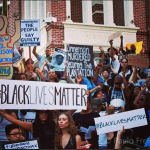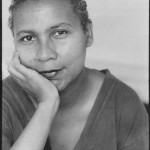As we begin discussing the dynamics of Teen Dating Violence, it’s important to understand the concept of Power & Control as it is a force found within many unhealthy relationships.
Let’s start with a discussion of power. When I say the word power, what images come to mind? Lightbulbs? Muscles? Tanks? Money?
All of the images that come to mind can be placed within one of three categories:
a) Individual/Power Within
b) Collective/Power With
c) Institutional/Power Over
[divider] [/divider]
[one_half_last]Individual Power/Power Within is the power that an individual feels. Feelings of individual strength, autonomy, and expression.[/one_half_last]
[one_half] [/one_half][one_half_last]Collective Power/Power With is the power that individuals feel when they come together. This can be thought of as synergy. The word synergy comes from the Ancient Greek term synergia, meaning “working together. Artivist M.K. Asante, Jr. defines synergy as, “…the interaction or cooperation of two or more agents to produce a combined effect effect greater than the sum of their separate effects.” We see examples of collective power in marches, protests, co-ops, etc.[/one_half_last]
[/one_half][one_half_last]Collective Power/Power With is the power that individuals feel when they come together. This can be thought of as synergy. The word synergy comes from the Ancient Greek term synergia, meaning “working together. Artivist M.K. Asante, Jr. defines synergy as, “…the interaction or cooperation of two or more agents to produce a combined effect effect greater than the sum of their separate effects.” We see examples of collective power in marches, protests, co-ops, etc.[/one_half_last]
[one_half] [/one_half]
[/one_half]
[one_half_last]Institutional Power/Power Over is the power that comes from institutions. It can be seen in some governments, monopolies, laws, and in the systems that enforce them.[/one_half_last]
[divider] [/divider]
The School of Unity and Liberation in California defines power as, “the ability to control circumstances.” Oftentimes, political scientists define power as the ability to influence the behavior of others, with or without resistance. Within social justice work, power can be defined as access to resources and/or privileges. Depending on your social position, it is more than likely to have different amounts of power in various parts of your life.
Now that we have a collective definition/vision of what power is and how it shows up, let’s talk about who is in power.
What groups have had access to power within our society?
What groups have had less power?
What systems have allowed for this power imbalance to occur?
Below is a power and oppression chart. Within it are three tabs. The tab on the left shows groups of privilege a.k.a. groups that have historically held power, the middle tab shows the system of oppression or the “-ism” that allows a power imbalance to happen, and the tab on the right shows the groups that have been oppressed or marginalized by the system of oppression for the empowerment of the privileged group.
[divider] [/divider]
Power & Oppression Chart
[tabs tab1=”Privilege” tab2=”System” tab3=”Oppression”]
[tab]
Groups with Access to Societal Power
- Men
- White People
- Upper/Middle class and rich people
- Adults
- Heterosexuals
- Able-bodied/able-minded people
- U.S. Born & U.S. Citizens
[/tab]
[tab]
Systems
- Sexism
- Racism
- Capitalism/Classism
- Adultism/Ageism
- Heterosexism
- Ableism
- Xenophobia
[/tab]
[tab]
Groups with Less Access to Societal Power
- Women/Transgender & Gender nonconforming and intersex people
- People of Color
- Poor and working class people
- Youth & Elderly people
- Lesbian, Gay, Bisexual, Transgender, Two-spirit, Queer & Questioning people
- People with Disabilities
- Immigrants and People outside the U.S.
[/tab]
[/tabs]
[divider] [/divider]
Before we move forward, let’s recap a few points. As we live our lives, we are constantly engaging under an amalgam of systems that benefit certain groups of people at the expense of others. This difference in power has led to a lot of violence, distrust, and heartache between and within groups. We’ve also defined power as the ability to control circumstances and as the ability to influence the behavior of others, with or without resistance.
So, what does power have to do with relationships?
The benefits and disadvantages faced by certain groups can show up in relationships and help to reinforce the power differences between people. When we are aware of these systemic forces, we can best understand how to help others and ourselves to make sure abuse and violence are not perpetuated in our community or intimate relationships. We can also understand the complex situations people are in when they try to access services from organizations/institutions that believe in and reinforce those -isms we just spoke about.
Later on this month, we will dissect and discuss Control and the ways that Power & Control develop the foundation of an unhealthy relationship.
…

 [/one_half]
[/one_half]